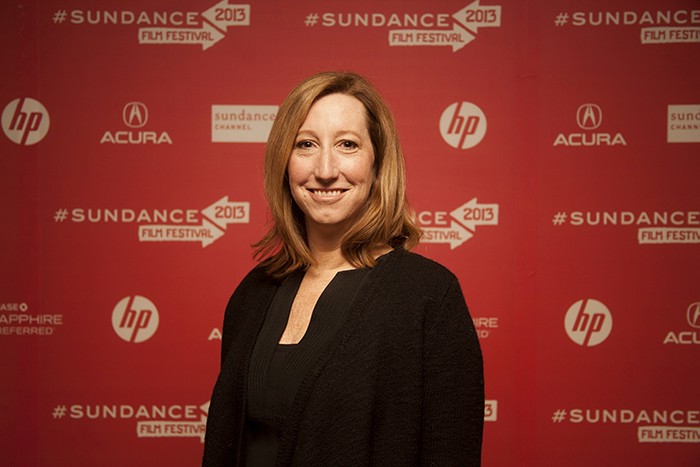As the Executive Director of the Sundance Institute, Keri Putnam oversees all of the organization’s programs, including the Women Filmmakers Initiative and its associated
research. Prior to taking the leadership role at the Sundance Institute, Putnam was Head of Production at Miramax and an executive at HBO. She has worked
with countless top directors, including the Coen Brothers, Paul Thomas Anderson,
Stephen Frears, and Lasse Hallstrom, among others. Through the Sundance
Institute’s Women Filmmakers Initiative, Putnam is working with practitioners and
academics across the industry to find ways of working towards
gender parity in the film industry.
Women and
Hollywood met Putnam at Sundance London.
Let’s jump
right in and talk about the goal of the Women Filmmakers Initiative, described
on your website as a plan to “identify and lessen roadblocks.” The word “lessen” stands out. Is there a way to eliminate the roadblocks?
Maybe the
word “lessen” is too un-ambitious — certainly we’re all up for eradicating the
roadblocks. Perhaps “eliminate” is a better word? It’s a process. The
Sundance Institute is one player in a very complex ecosystem and we feel we
have the ability to bring together a conversation among many organizations working
in this space. We want to contribute to the conversation. So, using the word “lessen” may be intended to recognize that the roadblocks are systemic and come
from many different sources. There’s no way for one organization to eradicate
them. But the idea of incrementally making progress, shining a light on
the issues, understanding what those issues are and being able to add to a
conversation about them and also, importantly, find programmatic ways to
address them — that is what we’re after.
You’ve
talked about the Sundance Institute as part of the ecosystem of the film
industry, but the film industry is also part of a larger ecosystem — the
worldwide social, cultural ecosystem where gender parity is still far from
reach in all senior roles in banks, board rooms etc. Are there ways in which
the film industry could work with global initiatives to promote women in
leadership roles?
Certainly
the idea of drawing lessons and power from conversations happening in other
sectors is central to our approach with the Women Filmmakers Initiative. For
example, one of the barriers we’ve identified in our research with Dr. Stacy
Smith at USC Annenberg [School for Communication] was the idea
that access to information and empowerment around finance is critical for
women. That study holds true in a number of sectors.
When we
held a workshop for our women fellows in New York — just ten days ago with 64
women filmmakers — we brought in a speaker from Morgan Stanley and an expert
to teach negotiation skills, marketing people and brand people. We wanted the
women filmmakers to learn from the other sectors. Many of our greatest
challenges are universal — there are great studies about women in hedge funds,
an area where women are highly under-represented. There’s an interesting
parallel to be drawn between what a senior executive needs to “be” and what a
film director needs to “be.” On the
bright side, I look at what is happening in Congress, and I feel like there are
big steps being taken in politics.
It is so
important for women to have role models — imitation being the sincerest form
of flattery. But if we are going to increase the number of women making films,
logic dictates that we need to support more first-time directors.
That’s
true. What we’ve found — we announced it in January and I’m not sure it has
really been digested — is that the filmmakers who come through Sundance Labs
are just as likely to get their movie made if they’re a woman or man. What’s
interesting is the value of a network, a community, and the support provided by
Sundance labs. If there’s a pipeline and the ability to recognize and support
talent early, maybe the market will respond.
Men and
women enter the Sundance Labs on equal terms, and you’ve found that they leave
with equal success. That raises the question of whether there is a place for
exclusively female forums — for example, women’s film festivals. Is there a
danger of “ghettoizing” female films and female filmmakers?
I don’t
think there can be any harm in shining a light on any community via a film
festival, and I’d encourage the celebration and highlighting of any sector of
film. But at the end of the day, we want to fight for great film and we want to
up the quality of films being made across the board. It’s interesting to read
what the Cannes team has said about the recent stark under-representation of
women directors at the festival — it was quite controversial. I felt that what
the programmers were saying was that they want to pick the best program — this
year they have more women, but sometimes they don’t. They don’t want the issue
of gender parity to be part of the selection process and I understand their
position. That said, our experience at Sundance Labs is that women are making
great films — they are just as likely as men to find distribution and an
audience.







